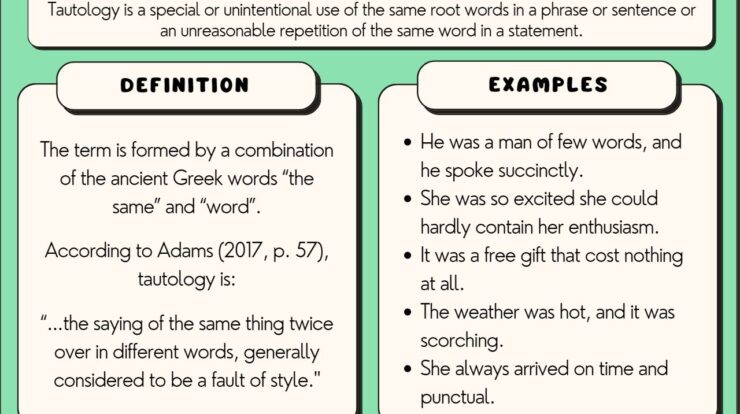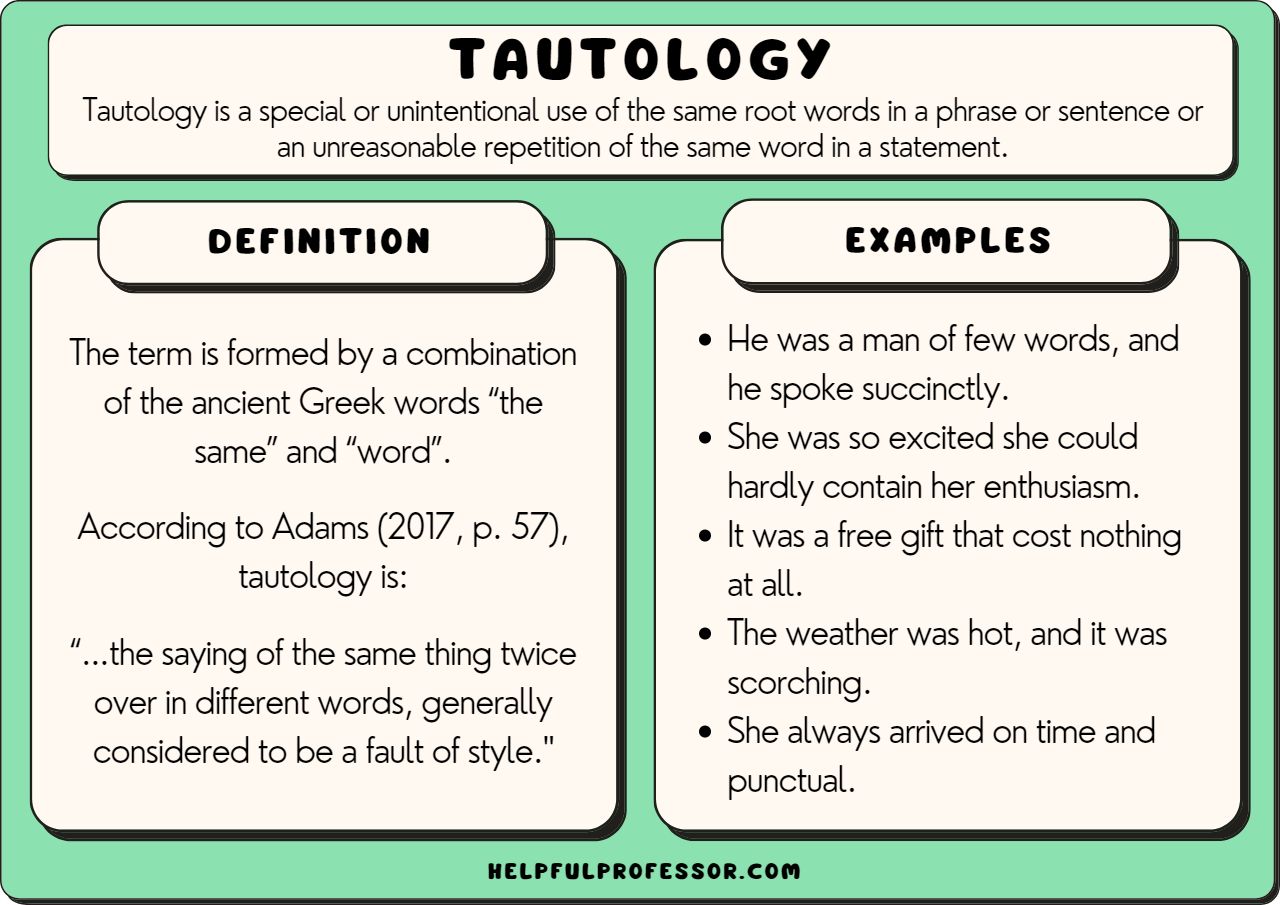
Tautological definitions, a form of circular reasoning, have sparked debate among scholars and language enthusiasts alike. These definitions rest on the principle of stating the same idea in different words, leading to a self-referential loop. In this article, we delve into the intricacies of tautological definitions, exploring their types, advantages, and disadvantages, while also presenting alternatives and frequently asked questions.
Tautological definitions are often employed in formal contexts, such as legal documents and academic writing, to provide clarity and precision. However, their inherent circularity has raised concerns regarding their validity and usefulness.
Tautological Definitions
A tautological definition is a definition that restates the word or phrase being defined using different words or phrases. For example, the definition of “love” as “a deep affection for someone” is a tautological definition because it simply restates the word “love” using different words.
Tautological definitions are often used in dictionaries and other reference works to provide a quick and easy way to understand the meaning of a word or phrase. However, they can also be used in more formal contexts, such as in academic writing.
Types of Tautological Definitions
There are two main types of tautological definitions:
- Explicit tautologies: These definitions explicitly state that the word or phrase being defined is equivalent to another word or phrase. For example, the definition of “synonym” as “a word or phrase that means the same as another word or phrase” is an explicit tautology.
- Implicit tautologies: These definitions do not explicitly state that the word or phrase being defined is equivalent to another word or phrase, but they do so implicitly. For example, the definition of “love” as “a deep affection for someone” is an implicit tautology because it implies that love is equivalent to a deep affection.
Closing Summary

In conclusion, tautological definitions, while offering the benefits of clarity and precision, are not without their limitations. Their circular nature can hinder critical thinking and limit the exploration of alternative perspectives. As such, it is essential to approach tautological definitions with a critical eye, recognizing their strengths and weaknesses.
By understanding the nuances of tautological definitions, we can navigate the complexities of language and communication with greater awareness and discernment.
FAQ: Tautological Definition
What is the primary characteristic of a tautological definition?
A tautological definition restates the same idea using different words, resulting in a circular definition.
Can tautological definitions be useful in any context?
Yes, tautological definitions can provide clarity and precision in formal contexts, such as legal documents and academic writing.
What are the limitations of tautological definitions?
Tautological definitions can hinder critical thinking and limit the exploration of alternative perspectives due to their circular nature.